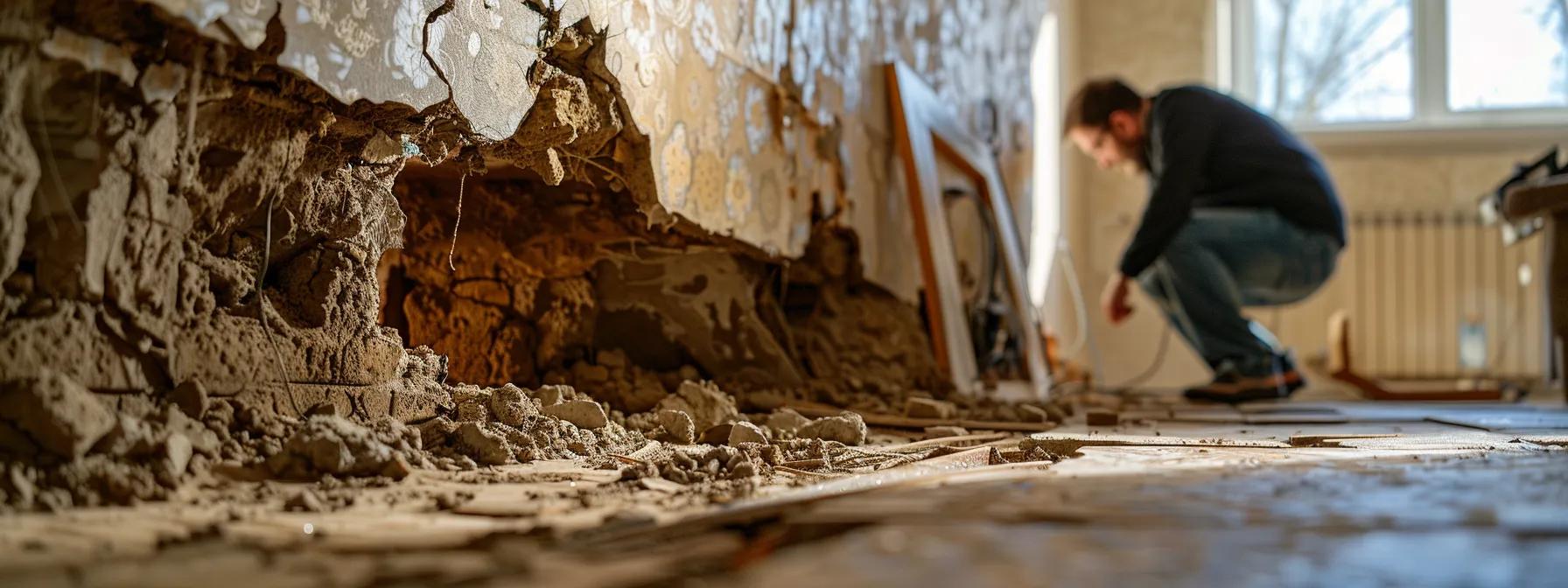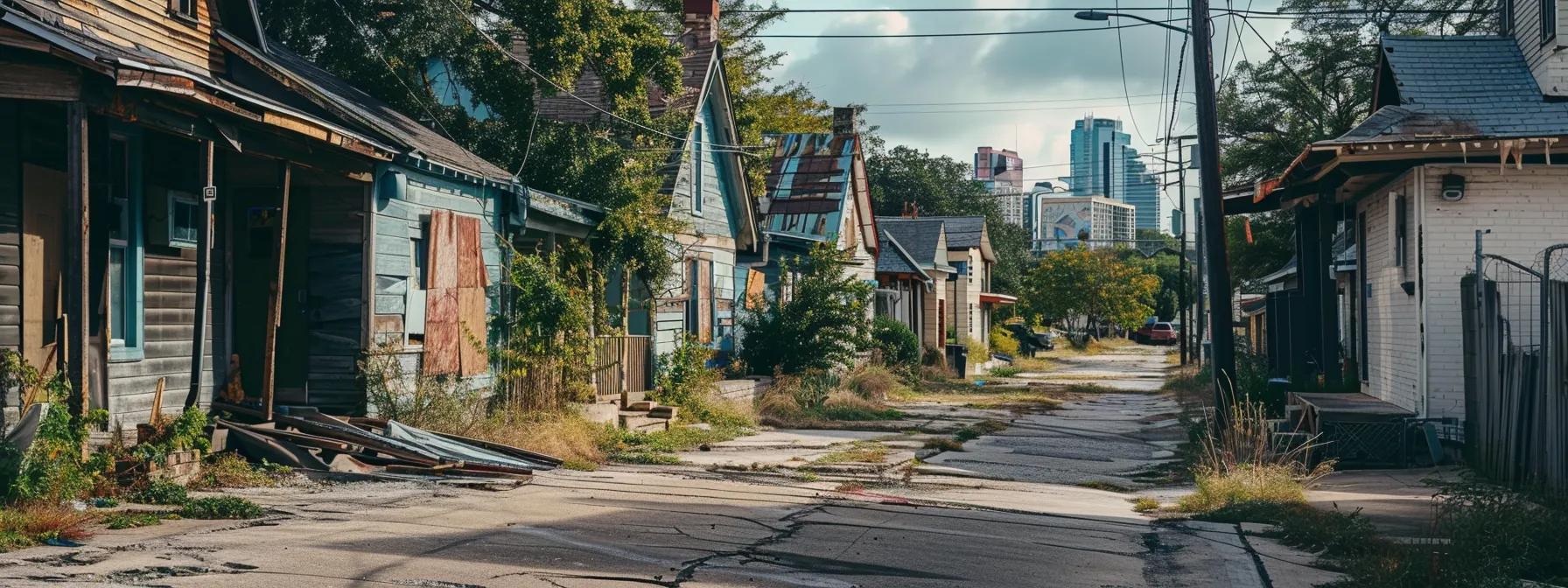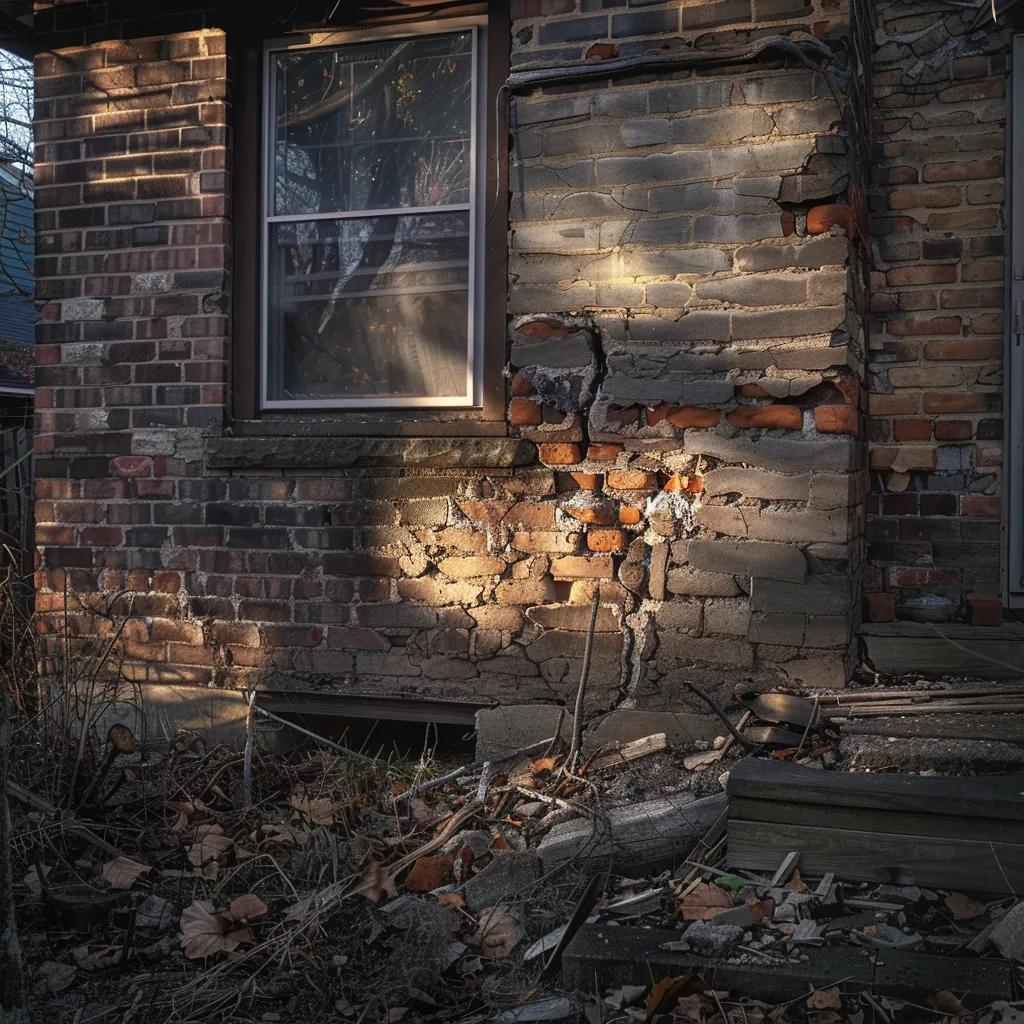Why Foundation Issues Lower San Antonio Home Values
The structural integrity of a home is paramount to both its immediate livability and long-term market value. In San Antonio, foundation issues are more than just cosmetic concerns—they can lower property values and create obstacles when homeowners sell. This article examines how foundation problems affect real estate by evaluating common foundation issues, financial ramifications, market trends, restoration strategies, available resources, and considerations for sellers. Homeowners, real estate agents, and potential buyers can better assess a property’s true worth and negotiate repairs when they understand these factors.
Understand How Foundation Issues Impact San Antonio Real Estate
Foundation issues affect both safety and marketability. Visible cracks, uneven floors, or sagging walls make buyers wary, as these signs indicate potential structural problems. Issues such as foundation settlement or failure often force price reductions, longer sale times, and tougher negotiations. Local real estate professionals agree that any indication of a compromised structure significantly lowers a home’s value and may lead to prolonged negotiations.
Identify Common Types of Foundation Problems in Homes
In San Antonio, the most common foundation issues include settlement, cracked walls, bowing basements, and uneven floors. Settlement occurs when soil beneath the home shifts, creating gaps or cracks in concrete slabs. Cracks may signal poor load distribution or moisture problems, while bowing or leaning walls indicate lateral pressure from shifting soil. Older homes often suffer from inadequate crawl space ventilation, leading to moisture accumulation and wood rot.
Even minor issues, if neglected, can escalate due to increasing soilpressure. Regular inspections and early professional evaluations are essential to prevent further structural deterioration and property devaluation.
Recognize Signs of Foundation Problems in San Antonio
Key warning signs include progressively widening cracks in walls or ceilings, sloping floors, and misaligned door frames and windows. Water pooling near the foundation, often due to poor drainage, can further destabilize the structure. Such visible indicators not only pose immediate safety hazards but also intimidate buyers during inspections.
Timely intervention by foundation repair experts can prevent costly future repairs and preserve the home’s market value.
Explore Regional Factors Contributing to Foundation Issues
San Antonio’s expansive clay soils, which swell with moisture and contract during dry periods, are a major contributor to foundation problems. Seasonal rains followed by drought exacerbate soil movement, stressing foundations even further. Local topography and fluctuations in underground water levels add to the challenges, making older constructions built without modern moisture barriers particularly vulnerable.
Awareness of these regional factors helps buyers and sellers understand the need for periodic repair and proactive maintenance.
Evaluate the Financial Ramifications of Foundation Damage
Foundation issues affect not just safety and aesthetics, but also have significant financial consequences. Repair costs can be high, and unresolved issues often result in lower resale values. Both homeowners and buyers must consider repair expenses when negotiating a sale or planning improvements. Early attention to structural problems can prevent further depreciation and limit financial losses.

Analyze Repair Costs and Their Impact on Home Value
Repair costs vary with the extent of damage. Minor fixes like addressing small cracks might cost between $5,000 and $15,000, while extensive underpinning or reinforcement projects can exceed $50,000. Studies show that homes with ongoing foundation issues can sell for 10% to 20% less than comparable properties with sound foundations.
Investors and homeowners must weigh whether repair costs will be offset by an increase in market value. Often, a professional appraisal is needed to justify repair investments, ensuring that expenses do not exceed the potential uplift in resale price.
Examine Insurance Coverage Options for Foundation Repairs
Insurance policies generally do not cover foundation damage from natural soil movement or gradual deterioration unless additional endorsements are purchased. Homeowners should review their policies annually and discuss options with providers. Certain preventive measures such as better drainage can sometimes result in discounts.
Additionally, some repair companies offer warranties that can help mitigate financial risk. A clear understanding of both insurance and warranty options is crucial in managing repair costs.
Consider the Effect on Mortgage Approval and Financing
Mortgage lenders closely scrutinize a property’s structural integrity. Homes with noticeable foundation issues can face delays in approval or higher interest rates due to the increased risk. Lower appraised values from unresolved problems also affect loan-to-value ratios, complicating refinancing efforts.
Prospective buyers and sellers should obtain thorough inspection reports and professional documentation to improve financing terms and secure better loan conditions.
Assess Market Trends Related to Homes With Foundation Problems
Market data indicate that homes with foundation issues generally sell slower and at lower prices. Foundation problems create uncertainty that affects buyer perception and appraisal values. This reality is compounded during economic downturns when buyers become even more cautious about hidden defects.
Review Historical Home Value Trends in San Antonio
Historical data from San Antonio show that properties with repaired or documented foundation issues tend to decrease in value by 10% to 15% compared to homes with intact foundations. Even after repairs, the stigma of past damage can linger, affecting buyer confidence and negotiation leverage.
Understanding these trends emphasizes the importance of preemptive repairs to avoid long-term value depreciation.
Investigate How Buyers Perceive Foundation Issues
For buyers, foundation issues are worrying because they signal potential long-term repair costs. First-time homeowners in particular demand detailed inspection reports and repair guarantees. Even professionally handled repairs may not completely dispel concerns, leading buyers to expect further price concessions.
Transparency through professional certifications and clear warranty documentation can help alleviate buyer fears, although a modest reduction in price may still be necessary to entice offers.
Understand the Role of Inspections in Real Estate Transactions
Comprehensive inspections are a key step in any real estate transaction involving foundation issues. Inspectors use various tools—from visual checks to advanced structural analysis—to assess the condition of the foundation. Detailed reports not only guide repair negotiations but also provide assurance to lenders and insurance providers regarding a home’s structural longevity.
Reliable inspection reports can boost buyer confidence and facilitate smoother transactions.
Learn How to Restore Home Value After Foundation Repairs
Restoring home value after foundation repairs means more than just the structural fix—it requires updating the overall appeal of the property. Integrating repairs with modern renovations can restore buyer confidence and improve marketability. Enhanced aesthetics and structural integrity together create a more appealing asset.

Implement Effective Renovation Strategies for Homeowners
Renovation after foundation repair should address both structural and visual elements. Updating interiors—such as new flooring, refreshed walls, and improved ceilings—can mask signs of previous damage. Adding modern insulation or energy-efficient windows further boosts appeal and market value.
A focused renovation plan that targets high-impact spaces, like kitchens and bathrooms, can significantly uplift the overall ambiance and help recover lost value.
Utilize Landscaping to Improve Curb Appeal
Exterior improvements are just as important as interior renovations. A well-designed landscape with native plants, proper irrigation, and decorative lighting can create a strong first impression during home inspections and showings. Simple upgrades, such as reseeded lawns or new walkways, can distract from minor foundation imperfections and signal good overall upkeep.
Effective landscaping serves as an affordable method to boost curb appeal, making the home more attractive to prospective buyers.
Enhance Interior Design Post-Repair for Increased Value
Modern interior design can transform a home after foundation repairs. Fresh paint, updated fixtures, and contemporary furnishings can redefine the living space. Open floor plans and increased natural light help create a secure and inviting atmosphere, encouraging buyers to overlook previous structural issues.
Collaboration between repair professionals and interior designers ensures that the renovations complement the foundational work, leading to higher overall property value.
Discover Resources for Addressing Foundation Problems
Having the right resources is essential when addressing foundation issues. Homeowners in San Antonio can turn to professional repair contractors, local government programs, and community forums for trusted advice and support. These resources provide technical expertise, guidance on maintenance practices, and peer reviews that aid in decision-making.
Find Qualified Foundation Repair Contractors in San Antonio
Choosing a reputable contractor is the first step in addressing foundation issues. Local experts offer services ranging from underpinning and waterproofing to complete foundation overhauls. Homeowners should seek out companies with positive reviews, certifications, and transparent pricing strategies. Comparing multiple quotes and repair plans helps ensure that the chosen solution is both durable and cost-effective. Warranties offered by experienced companies can also enhance buyer confidence during resale.
Access Local Government Resources for Homeowners
San Antonio’s local government provides various resources to help homeowners manage foundation issues. These include inspection programs, advisory services, and sometimes financial aid or low-interest loans for necessary repairs. Accessing local building code information and environmental guidelines can help homeowners make informed decisions about repairs and renovations.
Government-run programs are especially valuable in ensuring that repair work meets current safety standards and addresses local soil and moisture challenges.
Join Community Forums for Homeowner Support and Advice
Online community forums and local homeowner groups offer practical advice and shared experiences related to foundation repairs. Many homeowners have benefited from recommendations on repair options, contractor reviews, and cost breakdowns shared by peers. These forums serve as a supportive network, reducing the stress often associated with significant structural repairs and providing insights based on real-world experience.
Prepare for Selling a Home With Foundation Concerns
When selling a home with a history of foundation issues, clear communication is essential. Sellers must address past repairs transparently to build trust with potential buyers. A well-prepared disclosure along with detailed inspection and repair reports can pave the way for smoother transactions.

Disclose Foundation Issues to Potential Buyers
Full disclosure regarding foundation issues is key to establishing credibility during a sale. Sellers should provide documentation of all repairs, including warranties and expert evaluations. While this information might initially reduce buyer interest, it ultimately leads to fewer legal disputes and smoother negotiations. Informed buyers are more likely to accept a fair price when all relevant details are shared openly.
Develop a Competitive Pricing Strategy for Your Home
Properties with a history of foundation issues often require a pricing strategy that reflects past repairs and future maintenance. Sellers may need to adjust the asking price based on recent appraisals and repair costs. By clearly demonstrating that quality repairs have been completed, sellers can attract multiple offers even if the home’s value is slightly below local averages. Transparency in pricing, supported by professional documentation, can expedite the sale process.
Optimize Home Staging to Minimize Perception of Problems
Effective home staging helps shift buyer focus from past repair issues to the overall appeal of the property. A well-staged home with updated interiors, organized spaces, and a cohesive design theme emphasizes the home’s strengths. Professional staging—including fresh paint, modern furnishings, and improved lighting—can mask any lingering concerns about foundation history, making the property more attractive to buyers.
Table: Foundation Repair Cost and Home Value Impact Comparison
This table provides a concise comparison of typical repair costs and their potential impact on home value, offering a benchmark for homeowners planning restoration strategies.
Key Takeaways: Restoring San Antonio Home Value After Repairs
Foundation issues can deeply affect San Antonio home values. However, proactive repair and restoration—combined with transparent disclosure, competitive pricing, and thoughtful staging—can restore both structural integrity and market confidence. With the support of professional resources and a clear repair strategy, even homes with a challenging history can achieve attractive resale values.
Frequently Asked Questions
Q: How do foundation issuesaffect the market valueof a home in San Antonio? A: Foundation issues typically reduce a home’s market value by 10% to 20% due to safety concerns and potential future repair costs. These issues make buyers cautious and often lead to lower resale prices even after repairs.
Q: What are the most common foundationproblems seen in San Antonio homes? A: Common issues include foundation settlement, cracked walls, misaligned door frames, uneven floors, and bowed or leaning walls. These problems are largely due to San Antonio’s expansive clay soils which swell and shrink with moisture changes.
Q: Can foundationrepairs fully restore a home’s value? A: While repairs can stabilize the structure, the perception of past damage may still affect market value. Combining quality repairs with modern renovations and effective staging can significantly improve the home’s appeal and help recover lost value over time.
Q: Do homeowner insurance policies cover foundationrepairs? A: Most standard policies do not cover foundation repairs caused by soil movement or gradual degradation. Homeowners may need additional endorsements or specialized policies for these repairs.
Q: How can homeowners prepare for selling a home with foundationconcerns? A: Full disclosure, detailed inspection reports, a competitive pricing strategy, and strategic home staging are essential. These measures help mitigate buyer concerns and facilitate smoother, more confident transactions.
Q: What impact do foundation issueshave on mortgageapproval and refinancing? A: Lenders view unresolved foundation issues as a significant risk, which can lead to increased interest rates or rejections on mortgage applications. Proper documentation and professional inspections can help secure better financing terms.
Q: Are there local resources available in San Antonio to help with foundationproblems? A: Yes, local resources include qualified foundation repair contractors, government programs offering inspections and financial aid, and community forums where homeowners share repair experiences and recommendations.


